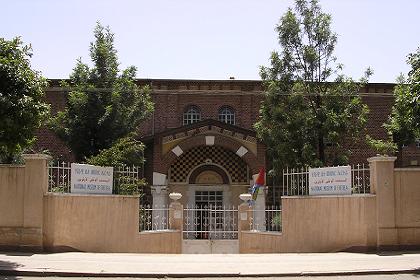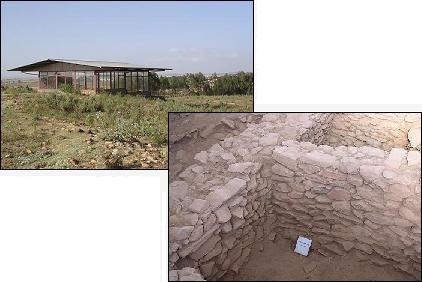Musea and art in Asmara
Art lovers Club
Art of all persuasions. A place where performing artists meet and create. Play and poetry readings are given. Stage performances are held. A small restaurant on the premises is located here in a lovely garden setting. Located on the Massawa road, right hand side, sign says Delux Bar.
The National Museum is situated opposite to the Selam Hotel. The exhibitions include artifacts from the excavations of Adulis, inscribed tombstones from the Dahlak Islands, Sabean material and scrolls in Ge'ez. Visitors are requested to leave their bags at the entrance of the museum. Making pictures is prohibited.
National Museum Asmara - close to the Selam Hotel.
The Sembel archaeological site (below) presents a look inside the ancient past of Eritrea between 800 B.C. and 400 B.C. It is a very well preserved example of a large village - for that time.
How to get to the Sembel archaeological site?
Visitors can reach Sembel via several means of transportation.
Bus: The number 12 and number 9 bus make their final stop in front of Kidane Mirhret church in Sembel Village. Walk to the church and turn right, following a dirt track up a hill overlooking a cemetery.
Taxi and private car: Travel towards the airport on Airport Road., pass the Asmara Intercontinental Hotel, and make a right turn at the traffic light into Sembel village. Proceed to Kidane Mirhret church, turn right onto a dirt track and then up the hill to the museum.
The Massawa Housing Complex houses the Southern Red Sea National Museum, showing the history of Eritrea in five sections: Section one is about the Red Sea bird- and sea life. Section two about the history of human evolution. Section three is a display of ancient Dahlak and Adulis. Section four is devoted to the nationalities of Eritrea, and section five is about the 1961-91 war of liberation.
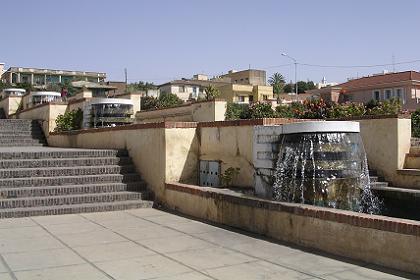
![]() Mai Jah Jah (Water Flow) is just behind the Red Sea Building
Mai Jah Jah (Water Flow) is just behind the Red Sea Building
(Ras Alula Street). It is a popular place to take family pictures.

Left: Even now Shabia Right: Our Challenge is a Mass Challenge
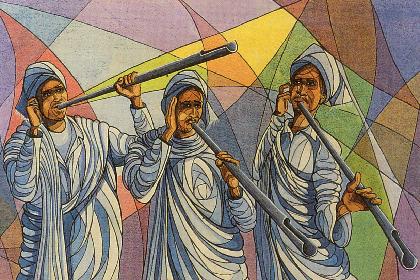
The Embelta Players
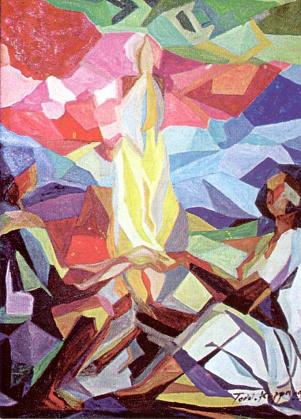
De Fiance (by Tadesse Kahsai)
In several parts of the city one can find paintings on the wall by contemporary artists of Asmara.
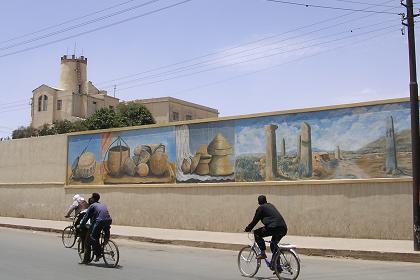
Wall painting (Lasta Street Asmara) with a fortress on the background.
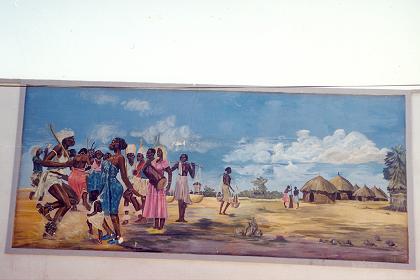
Painting (Menelik Street Asmara) representing the village of Barentu.
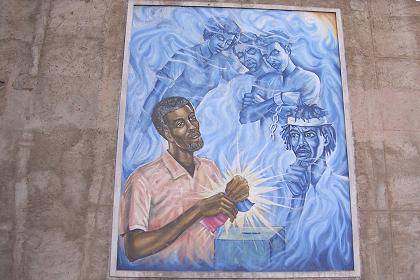
(Sempember 1st Parade Ground - BahtiMeskerem Square Asmara).
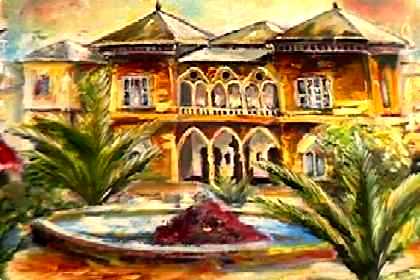
One of the four paintings in Sweet Asmara Caffee (Harnet Avenue)
representing Piazza Roma-Bank of Italy (now National Bank of Eritrea).
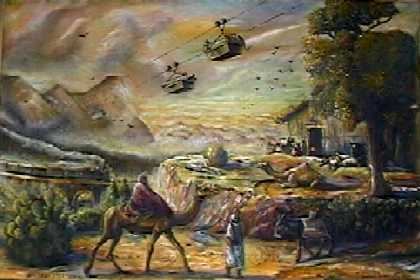
Sunshine Hotel - The landscape between Asmara and Massawa
( around 1950 ) - The Asmara - Massawa cableway and railway.
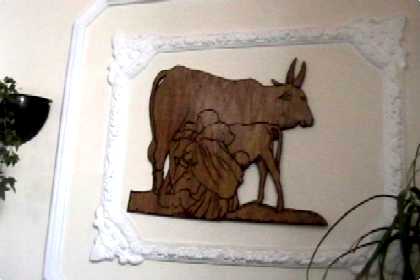
One of the beautiful woodcarved details in Bistro Alba (just behind
Harnet Avenue opposite to the Ministry of Education in Asmara).
Opposite to Bistro Alba one can find The Mask Place, a restaurant,
where one can buy quality fast food in an african environment.

Wall paintings (Knowledge Street Asmara). Pictured in 1996 by
Koos de Bruin. Now the trees are covering most of the paintings.
